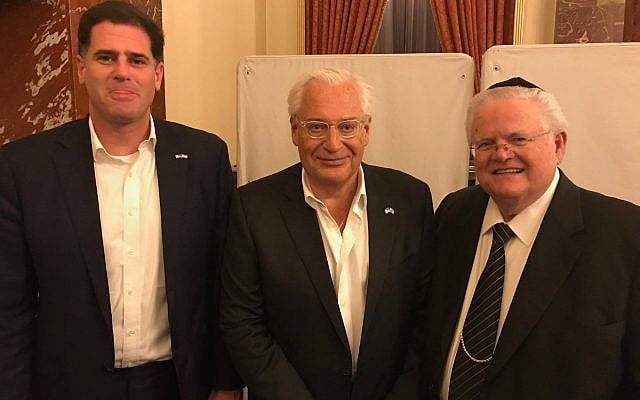Christian Zionists and MAGA Elites Are Engineering Israel’s End Times
In the heart of the Israeli-Palestinian conflict, a powerful yet often overlooked force operates: a coalition of American televangelists, political strategists, and tax-exempt nonprofits under the banner of Christian Zionism. This movement has channeled hundreds of millions into West Bank settlements, shaped pivotal U.S. foreign policy decisions, and sidelined the voices of Palestinian Christians—all in pursuit of an apocalyptic vision. Drawing on detailed investigations, financial records, and firsthand accounts, this report uncovers the machinery behind a theology-turned-political juggernaut.
Table of Contents
Millions Fueling Israel’s Settlements

Between 2009 and 2013, U.S.-based nonprofits funneled over $220 million in tax-exempt donations to Israeli settlements in the West Bank, funding housing, roads, and even legal defense for settlers accused of violence against Palestinians. This figure emerges from a detailed investigation by the Israeli newspaper Haaretz, as archived by the Pulitzer Center. These settlements, widely deemed illegal under international law, have expanded significantly with direct support from American donors who often believe they are hastening biblical prophecy.
At the forefront stands Christians United for Israel (CUFI), a lobbying group founded by televangelist John Hagee, claiming over 10 million members—more than the U.S. Jewish adult population. CUFI’s financial arm, the CUFI Action Fund, reports substantial annual contributions, with records accessible via ProPublica. More recently, a 2024 report by NPR revealed that groups like HaYovel have raised nearly $3.7 million for “defense equipment” in settlements since October 2023, while also organizing American volunteers to work on settlement farms.
The Jerusalem Embassy Move

The 2018 relocation of the U.S. embassy from Tel Aviv to Jerusalem marked a historic victory for Christian Zionist lobbying. Leaders like John Hagee and Robert Jeffress, who delivered prayers at the dedication ceremony, had direct access to Trump administration officials, including Vice President Mike Pence. Their involvement and Trump’s own admission that the move was “for the evangelicals” are documented by The Independent, which notes how the decision was framed as a biblical milestone for evangelical voters. Far from a neutral diplomatic decision, it inflamed regional tensions and undermined decades of U.S. policy on Jerusalem’s contested status.
John Hagee himself has been explicit about the apocalyptic stakes, stating in a sermon, “The Bible prophesies that the force of the Antichrist will come against Jerusalem… it will be the battle of Armageddon.” For CUFI and its followers, diplomacy is secondary to setting the stage for this final confrontation.
Further evidence of evangelical sway comes from Trump’s own statements and his administration’s appointments. As analyzed by the Arab Center Washington DC, figures like Mike Pompeo openly cited religious motivations for supporting Israel, reflecting a broader trend where evangelical priorities shape U.S. Middle East policy.
Red Heifer Ritual: A Provocation at Temple Mount
Among the more striking initiatives backed by Christian Zionists is the Temple Institute’s effort to breed a flawless red heifer, a biblical requirement for purifying the Temple Mount to build a Third Temple. This site, currently home to the Al-Aqsa Mosque—one of Islam’s holiest places—makes the project a potential flashpoint. The Institute’s mission is outlined on its own website, and a 2018 report by Charisma News celebrated the birth of a red heifer calf as a “final stage of redemption.” U.S. evangelical donations directly fund this effort, driven by a belief that it will hasten Christ’s return, despite the risk of catastrophic conflict.
Silencing Palestinian Christians
Christian Zionism’s focus on prophecy often comes at the expense of Palestinian Christians, whose ancient communities in Bethlehem, Jerusalem, and Gaza are caught in the crossfire. Rev. Dr. Munther Isaac, a Lutheran pastor in Bethlehem, expressed in a 2020 opinion piece with Al Jazeera: “Many Western Christians have weaponized Scripture to justify the occupation and dispossession of our people.” His words reflect a broader outcry from Palestinian clergy and global church bodies who argue that American evangelicals overlook their suffering as a necessary cost of apocalyptic timelines.
Why Young Evangelicals Reject Israel’s Cause
The future of Christian Zionism is far from secure. A 2021 study by the University of North Carolina at Pembroke, reported by CBN News and The Jewish Press, found that support for Israel among evangelicals aged 18–29 plummeted from 69% in 2018 to 33.6% in 2021. Meanwhile, support for a Palestinian state rose from 35% to 44.7%. Researchers point to social media exposure to Palestinian perspectives, a growing emphasis on racial justice, and unease with the movement’s militaristic theology as key drivers of this shift. For a generation shaped by movements like Black Lives Matter, it has become impossible to ignore the parallels they see between systemic injustice in the U.S. and the military occupation and dispossession of Palestinians.
A Looming Shift in U.S.-Israel Ties
The political clout of Christian Zionism remains formidable but faces emerging challenges. A 2025 analysis by the LSE Undergraduate Political Review notes that evangelical influence is strong in Trump’s second term, with appointees like Mike Huckabee (U.S. ambassador to Israel) rejecting a two-state solution and denying Palestinian identity. Yet, the generational divide suggests a potential decline in grassroots support, which could force Republican strategists to recalibrate their reliance on this voting bloc over time.
Frequently Asked Questions
The Future of Israel’s End-Times Agenda
Christian Zionism is not a marginal ideology—it’s a financial and political force that has reshaped the landscape of U.S.–Israel relations. With millions in donations, direct access to policymakers, and a theology that prioritizes prophecy over people, it has left an indelible mark on the Middle East. Yet cracks are forming: younger evangelicals are turning away, and Palestinian Christians are demanding to be heard. As its base fractures, the movement faces a choice: fade into irrelevance or double down on its apocalyptic vision, risking a manufactured conflict with consequences that would echo for generations.
Sources
- Pulitzer Center: Haaretz Investigation on $220M to Settlements (2015)
- ProPublica: Christians United for Israel Action Fund IRS Filings
- NPR: Conservative Christians Lending Cash to Israel (2024)
- The Independent: Trump Admits Embassy Move Was for Evangelicals (2020)
- Arab Center DC: American Evangelicals and Israel Policy (2022)
- Charisma News: Red Heifer Birth & Third Temple (2018)
- Temple Institute: Red Heifer Introduction
- Al Jazeera: Christian Zionist Archaeology as a Tool of Palestinian Subjugation (2020)
- CBN News: Drop in Young Evangelical Support for Israel (2021)
- The Jewish Press: Evangelical Youth Support Decline (2024)
- LSE Undergraduate Political Review: Politics of Apocalypse (2025)
Have a tip, correction, or want to share your perspective? Contact us here or leave your thoughts in the comments below.





